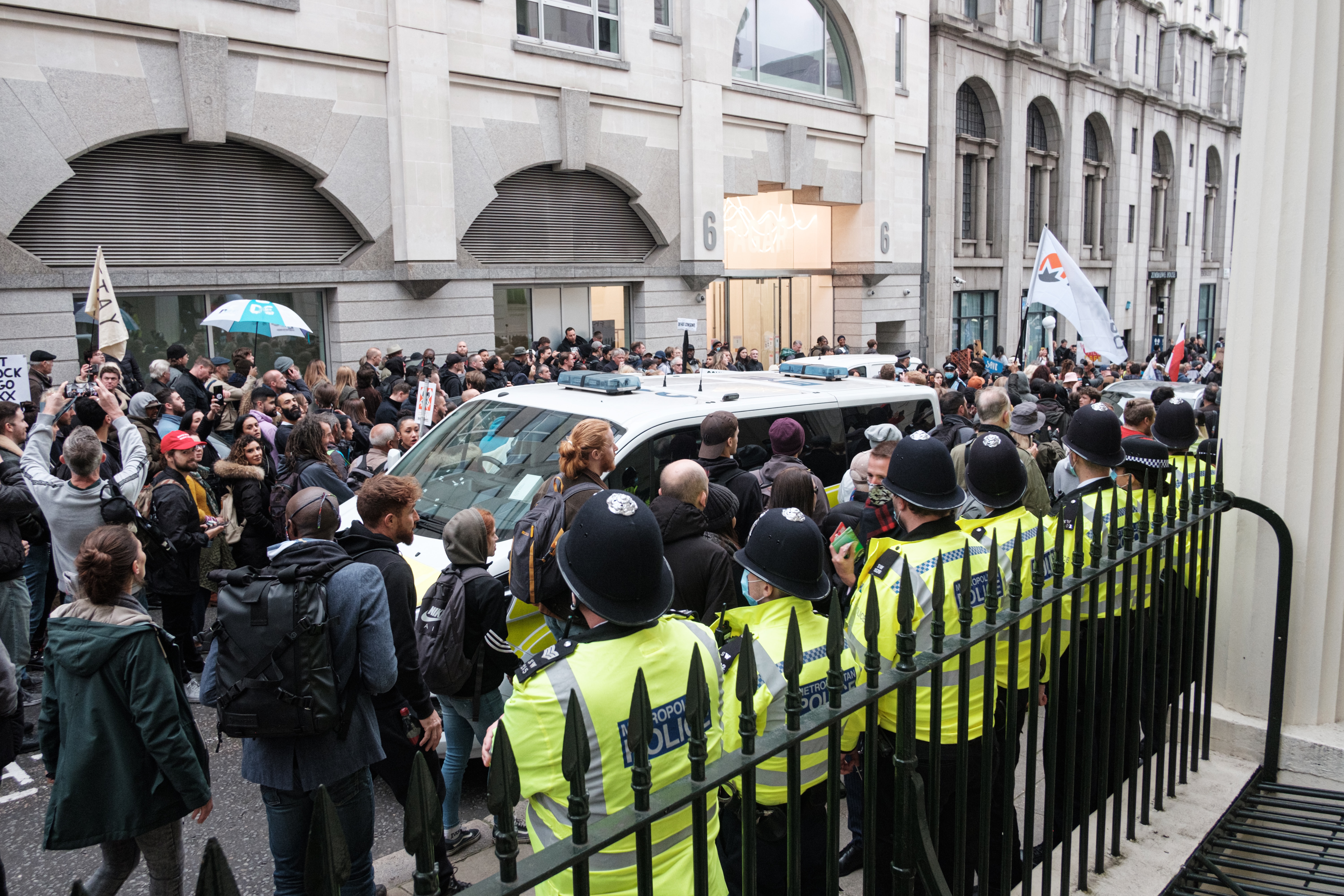Police in Great Britain could be given ‘near total discretion’ over protests

Police will have “near total discretion” over which protests to ban if lawmakers approve the government’s latest changes to Great Britain’s public order regime, a leading human rights lawyer has said.
Secondary legislation in parliament this week will empower police to impose conditions – including changing timings, locations and routes, and imposing noise restrictions – on protests they believe “may” cause “more than minor” disruption.
It will significantly lower the threshold for serious disruption, the criteria that allows for police interference with protests, which is currently defined as “significant” or “prolonged” disruption to the day-to-day life of the community. The legislation applies to England, Wales and Scotland but not Northern Ireland.
“The threshold would be so low that it could lead to police imposing conditions on protests which would breach the rights of protesters,” said Adam Wagner, a barrister with Doughty Street Chambers.
“In my view, this could give the police a far wider, nearing total, discretion as to which processions or assemblies could be made subject to conditions.”
A protest act as typical as a peaceful march attended by hundreds of people, closing roads and stopping traffic, would “undoubtedly” be considered serious disruption within the meaning of the proposed changes, Wagner said.
“Although such conditions can in theory be challenged in advance by judicial review, including on human rights grounds, the reality is that this is well beyond the reach of most protesters as they may lack the time, experience and capacity, it is very costly and such challenges do not generally attract legal aid,” he said.
“This leaves individuals who want to protest with the choice of simply acquiescing to the conditions restricting their protest or risk arrest, detention and prosecution for breaching them, and hoping to successfully defend any prosecution at trial.”
The Public Order Act 1986 (Serious Disruption to the Life of the Community) Regulations 2023 will be debated for 90 minutes in the Commons on Monday, and then in the Lords on Tuesday, where it will face a fatal motion tabled by Jenny Jones, the Green party peer.
The Lords rejected the same measure just months ago when it was tabled as an amendment to the recent Public Order Act 2023. Its return has raised concerns among peers and senior lawyers about the constitutional implications of the use of secondary legislation to revive measures only recently rejected by lawmakers.
Lady Jones said: “If we allow the government to get away with this repressive change to the laws of protest, which parliament has already rejected, then other ministerial decrees will follow that see major changes to environmental and workplace protections.
“In the last four years we have passed a huge number of skeleton bills that give ministers the power to make or change laws. This is a shifting of power from parliament to Whitehall. My fatal motion tries to stop ministers taking this power grab on to a new level of government by diktat.”
Friends of the Earth, who commissioned Wagner’s legal opinion, and dozens of other campaigning organisations including the Women’s Institute, the Quakers and Amnesty International, have asked peers to back Jones’s motion.
Dave Timms, FoE’s head of political affairs, said: “It’s interesting that the government has scheduled a debate and vote for Monday in the Commons. Likely they will win that, but I think they are worried about the constitutional issues adding to the opposition to the measure in the Lords and they want to say that the statutory instrument has been approved already by the elected chamber.
“Also they will no doubt throw the charge at Labour that they are backing Just Stop Oil, when the reality is that these measures are nothing much to do with JSO. Their slow marches are already seeing police conditions using Section 12 of the Public Order Act 1986 very quickly used against them, with the current definition of serious disruption.”
Conservatives have sought to draw links between Just Stop Oil and the opposition Labour party, which has pledged to stop issuing new licences for oil and gas exploration in the North Sea – the climate campaign’s core demand.
The prime minister, Rishi Sunak, said it appeared “eco-zealots” were writing Labour’s energy policy after it emerged the Labour donor Dale Vince was also donating to Just Stop Oil, and a former Extinction Rebellion lawyer was appointed a key adviser to Ed Miliband, Labour’s spokesperson on climate change and net zero.
The government said the new legislation was intended to give police the powers to break up slow marching protests. Supporters of the measure said MPs had not voted on it as an amendment to the Public Order Act 2023, but would now have the chance to do so.
The Home Office was clear about the reasons for the measure. A spokesperson said: “A handful of selfish individuals should not be able to bring our roads to a halt, day after day and people must be able to go about their lives freely. That is why we are introducing a new definition of serious disruption, to give police the confidence they need to clear roads quickly. We urge parliament to back this new legislation and support our police officers in keeping our country moving.”
Source: (The Guardian)

